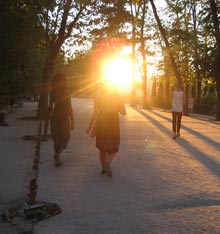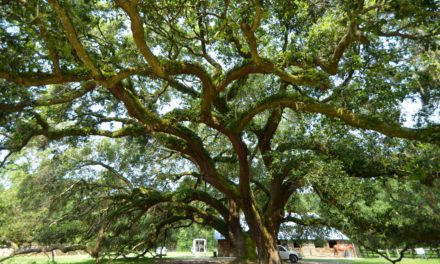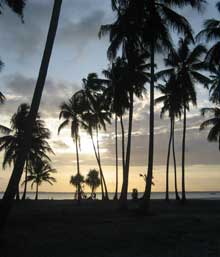 A wall of thick heat waves over me as I step off the plane in Zanzibar. I’d never heard of this Tanzanian island in the Indian Ocean until a friend of mine from college said he’d be living there learning Swahili and extended a casual invitation. Thanks to either the Google images or a dream I’ve had since I was a little girl, I’ve just arrived 8,600 miles away from Beaufort.
A wall of thick heat waves over me as I step off the plane in Zanzibar. I’d never heard of this Tanzanian island in the Indian Ocean until a friend of mine from college said he’d be living there learning Swahili and extended a casual invitation. Thanks to either the Google images or a dream I’ve had since I was a little girl, I’ve just arrived 8,600 miles away from Beaufort.
Keith is there to greet me outside the airport. He is wearing a tall, woven tam on his head and a button down t-shirt with the lion of Judah on his breast pocket. He grabs my heavy duffle bag and directs me onto a dala-dala he sees parked on the side of the road. Inside the local transport, my friend begins telling me stories of his recent trips to Ethiopia and Kenya, all the while I am staring wildly at the conductor dangling halfway outside the van as we move toward the capital city.
Arriving in Stone Town, I feel a state of surrender washing over me, the kind that descends upon any westernized civilian when she’s dropped into a wor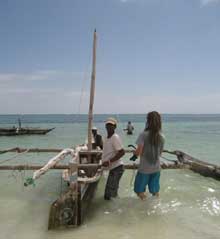 ld completely apart from her reality. Even though my intentions are to be here, everything is unexpected. I follow Keith through the open markets and narrow dirt alleyways to a three-story apartment, watching the locals’ surprised expressions as a “Rasta” white boy greets them in Swahili, “Vipi?”
ld completely apart from her reality. Even though my intentions are to be here, everything is unexpected. I follow Keith through the open markets and narrow dirt alleyways to a three-story apartment, watching the locals’ surprised expressions as a “Rasta” white boy greets them in Swahili, “Vipi?”
“Poa!” They answer.
Keith’s Zanzibari friend Haji meets with us for a tamarind juice at sunset. Haji is tall and skinny, and his yellow eyes contrast with his dark skin color. He also keeps his flatter dreadlocks in a white tam; he says it’s out of respect for Zanzibar’s Muslim population – the same reason I am covered from wrist to ankle in the equatorial heat.
It’s funny to me, their mutual enthusiasm for the sunset – that is until I see that the natural environment is the principal form of entertainment for the Zanzibari people. At sunset the plaza is bustling, and we watch the local boys taking turns somersaulting into the water until it grows dark. Now the street food vendors are busy at work. A man crushes a long sugarcane through a machine that rings out the sweet juice. Wherever I was this morning doesn’t matter because tonight I will fall asleep under a mosquito net and fan, and it all seems like a dream. 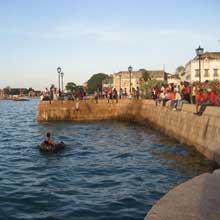
We leave Stone Town after a few days, heading for the East coast of the island where Keith is living in a small village called Bwejuu. Crammed into another dala-dala, I am dozing off under the spell of the heat between Keith and Haji’s cousin when we arrive. Immediately I notice the difference: quieter, greater breeze, loads of coconut trees. Cows all skin and bones wander the white-sanded streets. Zanzibari women in vibrant colorful clothing are bent over in the crystal clear ocean harvesting seaweed. Men collect under the shade, resting all day. There is a Swahili expression for these island vibes—“pole pole” or “slowly, slowly.” Pole pole dissipates all worries, like someone could just say it and it’d bring a smile to my face. It feels as though with the slower pace of life we are more present.
I am welcomed to Mustapha’s Place where my friend has been living for over a month working 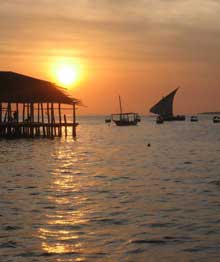 upstairs in his “office”—an open-aired, makuti-thatched room with a view of the ocean just beyond. Mustapha’s Place is a lodge of private bungalows amid a tropical garden of Eden. The kind of place where you wake up to birdsong, fresh juice and Africafe; where the faint sound of reggae music plays day and night; where you step into the sand after a refreshing shower because there is no need for shoes. That sort of paradise.
upstairs in his “office”—an open-aired, makuti-thatched room with a view of the ocean just beyond. Mustapha’s Place is a lodge of private bungalows amid a tropical garden of Eden. The kind of place where you wake up to birdsong, fresh juice and Africafe; where the faint sound of reggae music plays day and night; where you step into the sand after a refreshing shower because there is no need for shoes. That sort of paradise.
The staff welcomes me to eat lunch with them by the kitchen because of Keith. I am honored in a way to squeeze the rice and fish sauce in my hands and stuff it in my mouth beside them, even if I do not understand the Swahili. And at night we all come together at the heart of Mustapha’s Place to watch the fire blaze—bush TV, as they call it. They change channels by adding or moving a log.
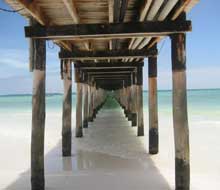 Maybe you kayak to the reef in the morning or play soccer or walk on the beach. Maybe you have nothing better to do than to watch the palms dance with the ocean’s breeze. And then maybe you find yourself on a pitch-black dirt road in Africa, holding on as the manual moped drives, and you look up to the school of stars knowing you’ve never felt more alive.
Maybe you kayak to the reef in the morning or play soccer or walk on the beach. Maybe you have nothing better to do than to watch the palms dance with the ocean’s breeze. And then maybe you find yourself on a pitch-black dirt road in Africa, holding on as the manual moped drives, and you look up to the school of stars knowing you’ve never felt more alive.
We are free in Zanzibar. It’s like I’ve been waiting my whole life to learn how to embrace a pole pole lifestyle because back home it hardly exists. Not with the malaise of industrialization and our constant commercial bombardment. Who knew Africa could be so rich? And all you had to do was sink your toes into the sand and turn on the bush tv.


